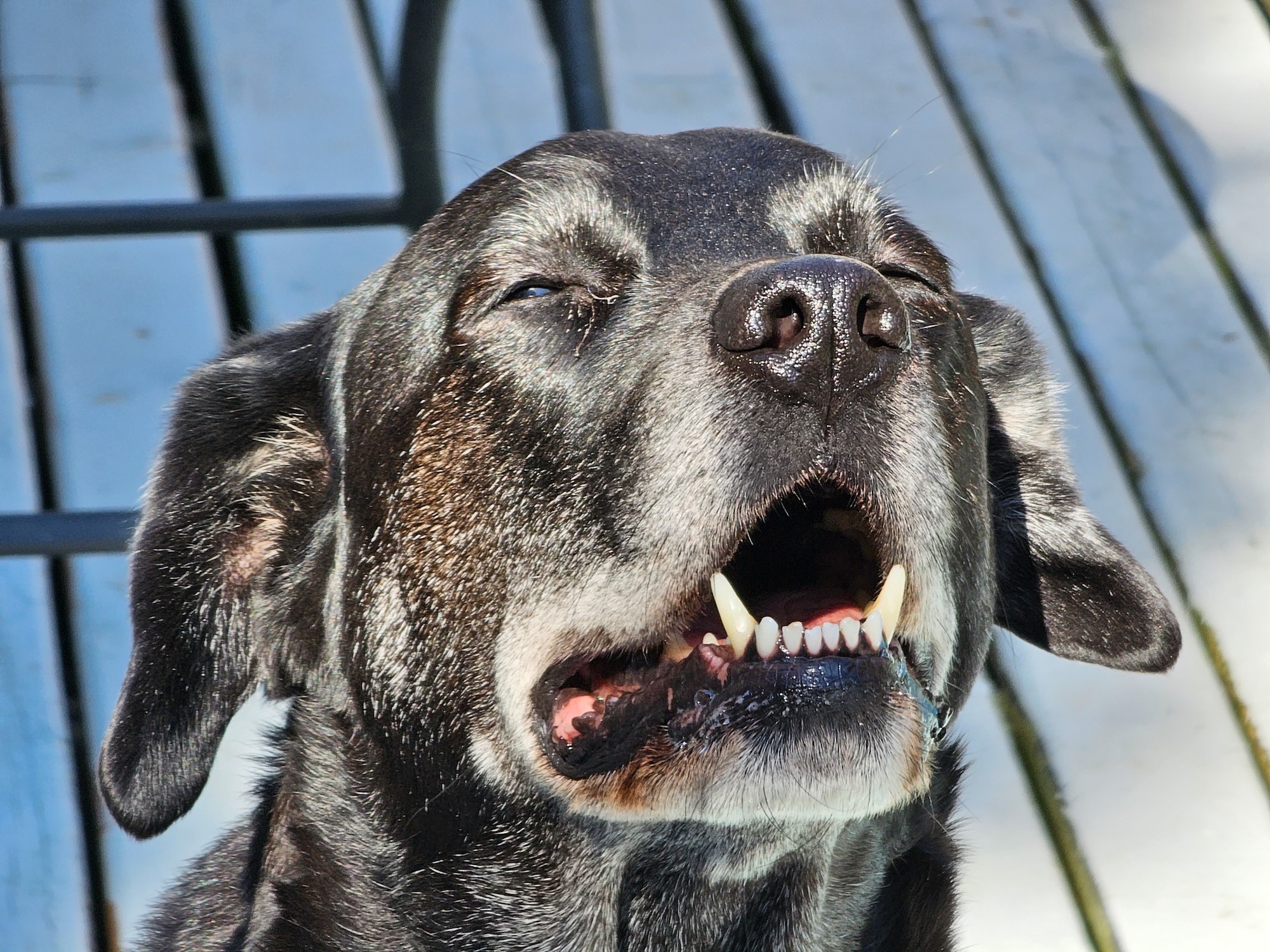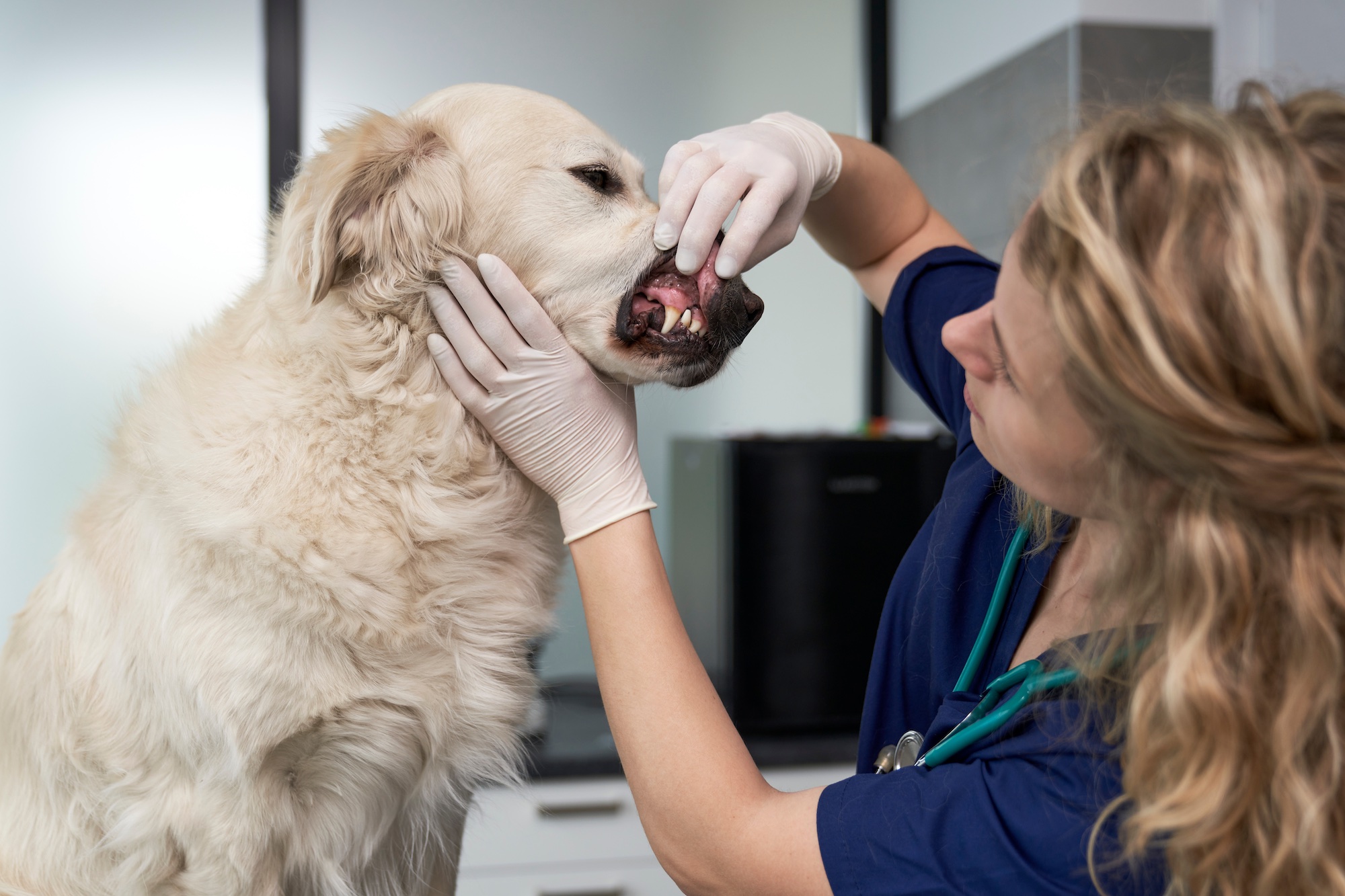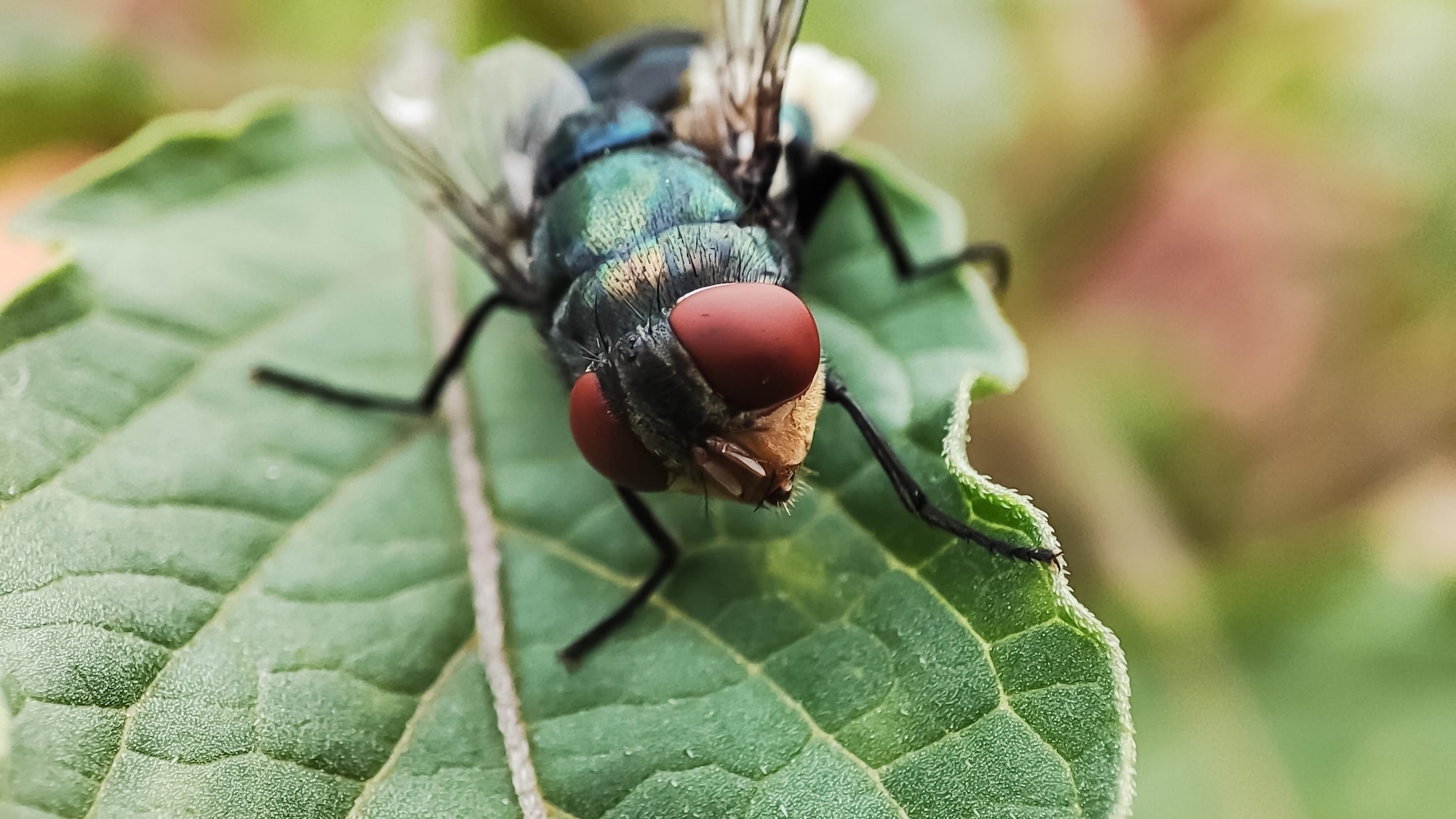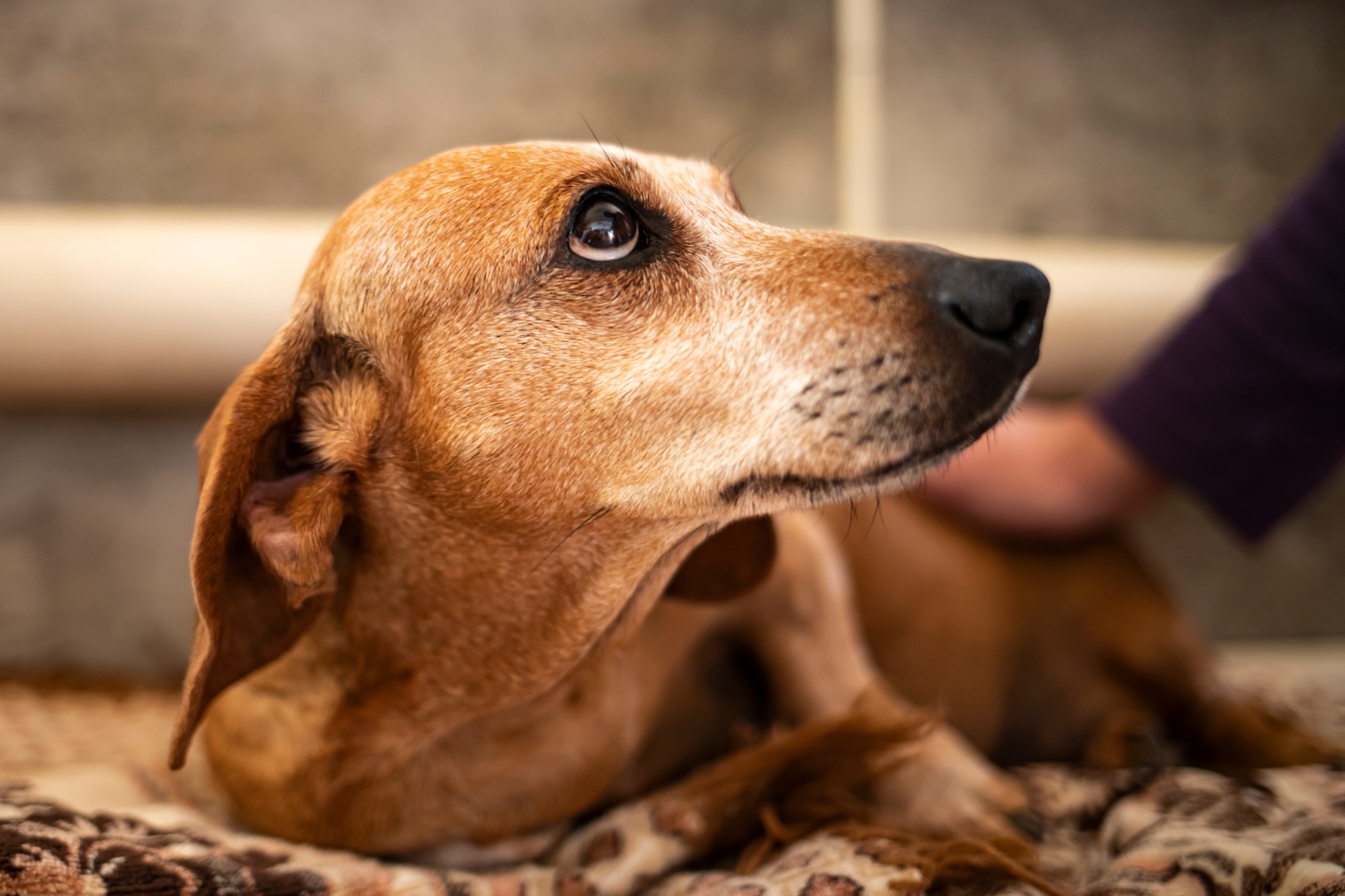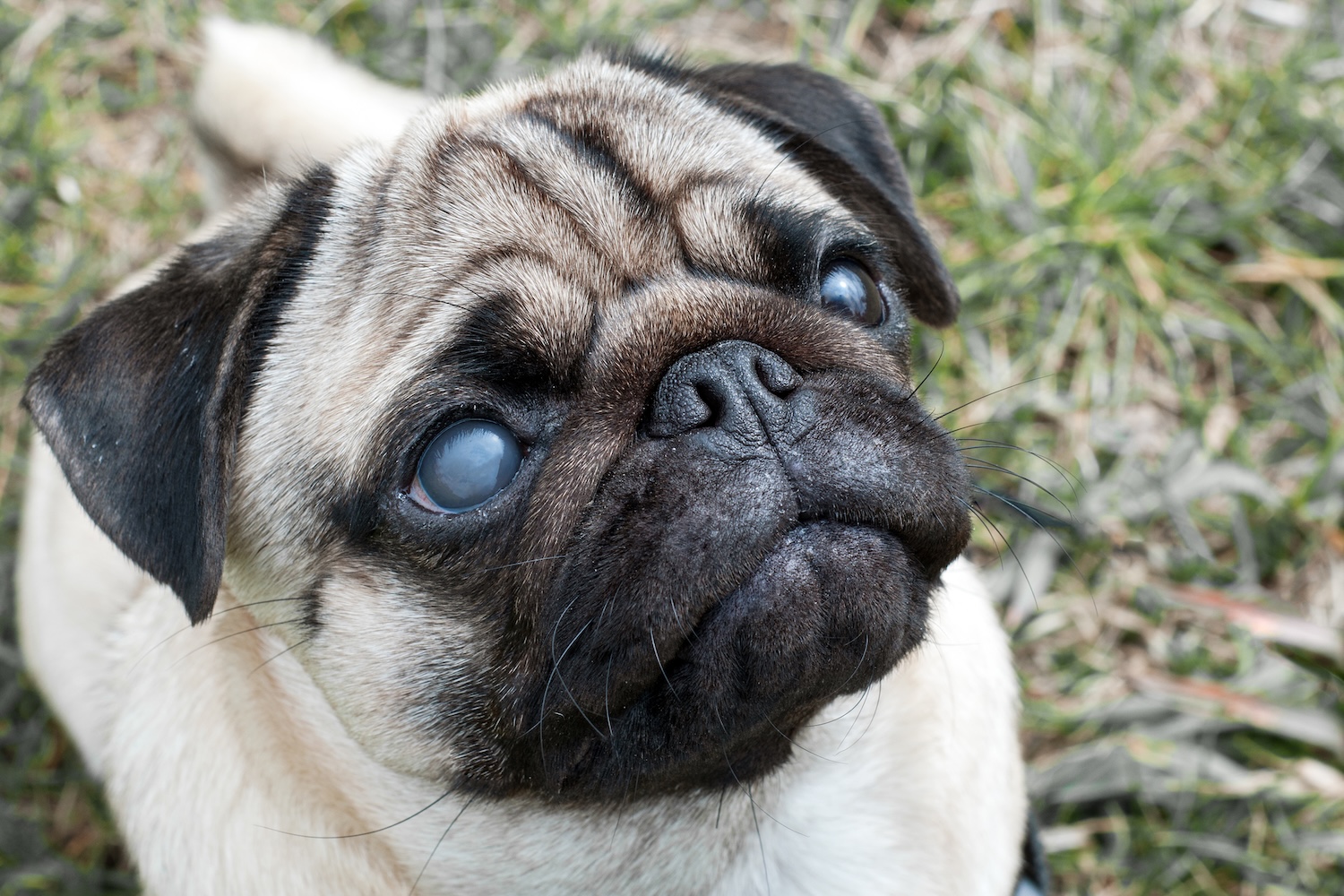Despite the connotation of the phrase “dog breath,” your dog’s breath shouldn’t be noxious—at any age. In fact, while you may detect some occasional breath odor from something your dog has eaten or chewed, generally, their breath should be neutral. If your senior dog’s breath suddenly turns sour, don’t assume that it’s an unavoidable consequence of aging. Ongoing oral malodor (aka halitosis) can indicate a serious underlying issue, such as dental disease.
Here’s a guide to what’s normal and not, and when your dog’s breath should send you running from the room (to call your vet).
What causes bad breath in senior dogs?
Your dog’s breath might not be minty fresh like yours after brushing, but it shouldn’t be gross up close, or detectable from several feet away. If you do notice some occasional not-so-sweet breath from your senior dog, it may be the result of dietary indiscretion—they’ve scarfed down something they shouldn’t have—or something malodorous you’ve given them to eat. Medications or supplements like fish oil may also affect your dog’s breath. But if you’ve ruled out specific foods or meds as the culprits, ongoing bad breath may indicate an underlying problem.
These are some of the issues that can be linked with changes in your dog’s breath:
- Dental disease: This is the leading cause of bad breath in dogs, and one of the most common canine health issues overall
- Oral cancer: Along with symptoms such as excessive drooling, trouble chewing, and oral bleeding, bad breath can be one indication of this disease
- Diabetes: Bad breath that smells slightly fruity or sweet is one sign of diabetes (along with more frequent urination and water drinking)
- Liver disease: Look out for extremely foul breath and yellowish gums, as well as loss of appetite and vomiting
- Kidney disease: Breath that smells of urine is one sign of kidney disease
- Coprophagia: Also known as feces-eating, this condition could certainly result in bad breath. While it’s thought that coprophagia could be a behavioral issue, or could mean your dog isn’t getting, or absorbing, sufficient nutrients, the reasons for it are not fully understood
- Gastrointestinal issues: Breath problems may reflect digestive issues, GI blockages, or gastroesophageal reflux disease
- Oral or gut microbiome imbalance: Halitosis may result from bacteria imbalances in the mouth or GI tract. A poor-quality food that does not meet their nutritional needs, medications, or other factors can disrupt the balance of your dog’s oral or gut bacteria—leading to smelly breath (and impacting overall health as well). Conditions like small intestinal bacterial overgrowth (SIBO) can also cause bad breath.
When you’re addressing your dog’s breath, make sure you’re not just looking to cover up the problem. If their breath is chronically bad, schedule a vet visit. A veterinary professional will be able to identify the root problem, offer guidance on both eliminating the stinky breath and treating or managing any underlying health conditions, and provide regular, preventative care.
Dental disease in senior dogs
Periodontal disease, or dental disease is an all-too common condition in senior dogs—in fact, 80% of dogs over three years old develop dental-health issues. And this is a likely cause for your dog’s halitosis—whether they’re an adult or a super senior.
Dental disease typically starts with plaque, a film that forms on teeth when bacteria in the mouth mix with food particles. If the plaque isn’t removed it hardens into tartar, which begets more plaque and, if left unchecked, accumulates and causes gingivitis, or inflammation of the gums. Gingivitis can then progress into dental disease. While the disease can escape notice in its early phase, it can become serious and have big health implications if it goes untreated. Canine periodontal disease causes pain, inflammation, infection, and tooth decay. If the bacteria gets into a dog’s bloodstream, it can even affect other organs like the heart, liver, and kidneys.
Common signs of dental disease in dogs include: bad breath, visible tartar on the teeth, bleeding gums and change in gum color, or any sign of oral pain, including inability to chew, favoring one side of the mouth, or pawing at the mouth. Take note if your dog loses interest in eating, is less active than usual, or is simply “off”—these may also be signs of infection or chronic pain from dental disease.
If you notice any of these signs you should schedule an appointment with your vet right away.
Preventing dental disease — and bad breath
One of the best things you can do for a dog, at any age, is to take good care of their teeth and gums to ward off dental disease. Your best path to good canine oral health starts with your vet—they’ll advise on preventative care, cleanings, and anything that looks (or smells) like trouble.
Another key step is brushing your dog’s teeth daily (or, if more realistic, a few times per week) using a toothbrush designed specifically for dogs. With a bit of training, lavish praise, and a flavorful, non-foaming doggie toothpaste, many dogs even enjoy this little ritual. Ask your vet if there’s a particular brush or toothpaste they recommend—and never use toothpaste intended for humans. (Also, avoid baking soda, which isn’t good for dogs). Your vet can show you the most effective way to brush so that you’re getting the job done each time. You can also consult our guide to brushing your dog’s teeth.
Vet-approved dental treats and chew toys can also help keep your senior pup’s mouth fresh and clean and keep them occupied and happy. Ask your vet for their recommendations on finding the best dental products for your pet.
Some dogs are more likely than others to have mouth issues—smaller breeds, for example, are more predisposed to dental disease because their smaller mouths have less space between the teeth (and often are overcrowded). This allows harmful plaque and bacteria to build up faster. On the other hand, large dogs tend to suffer more from fractures and problems associated with chewing items that are too hard. Regardless of size, dogs should have their teeth checked by a veterinarian at least annually.
For older dogs with a lot of tartar build up or other dental issues, your vet may perform a professional cleaning (known as scaling and polishing). The procedure is done under anesthesia. A thorough examination and blood work will be done prior to the cleaning to make sure it’s safe to proceed. In cases of advanced dental disease, your vet may recommend a surgical intervention, such as extracting teeth.
Your dog’s daily diet also plays a role in their dental health, and the quality of their breath. Feeding fresh, complete and balanced food is a great way to help keep your dog’s mouth and teeth healthy, and promote their overall health. There’s a persistent assumption that any kind of kibble will help keep dogs’ teeth clean. This oft-repeated notion seems to rest on the principle that as a dog crunches down, the pieces of kibble will scrape their teeth clean. It’s true that some specially formulated prescription dental diets and treats may help keep teeth clean. But typical kibble is not effective at preventing plaque or tartar buildup.
Regular toothbrushing, vet-approved dental chews, and regular veterinary care are the most effective ways to protect dogs’ dental health.
Supplementing your dog’s senior’s regular diet with a probiotic formulated specifically for dogs can also help balance healthy oral bacteria and keep breath smelling fresh. Check with your vet about the best brand of probiotics for your dog and an appropriate dosage.
Overall, the best way to “cure” your dog’s bad breath is to identify and treat the underlying issue causing it. If you’re on top of your dog’s dental health, and your vet gives the go-ahead, you can explore vet-recommended dental chews or other remedies to keep your senior’s breath as fresh as it can be.
Never give your dog any mints or oral supplements designed for people—they can be extremely toxic. Xylitol, an artificial sweetener that can be deadly to dogs, may be present in minty breath products.
By establishing a good oral-care routine, you can help your senior dog maintain optimal dental health, and overall health. It’s never too late to start, and it’ll help keep their breath—and your nose-to-snout interactions—sweet.
